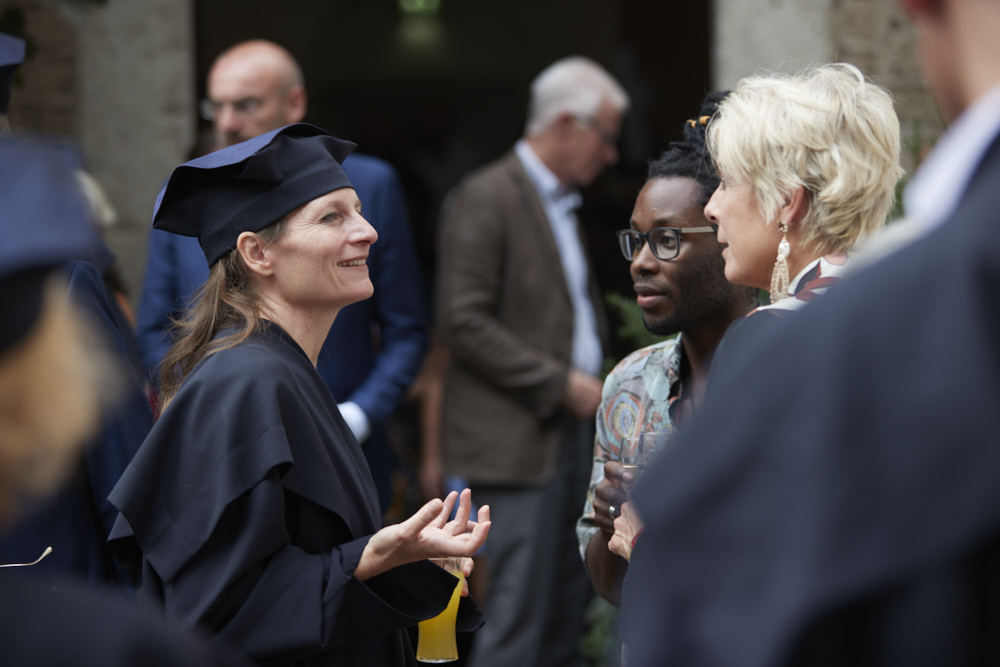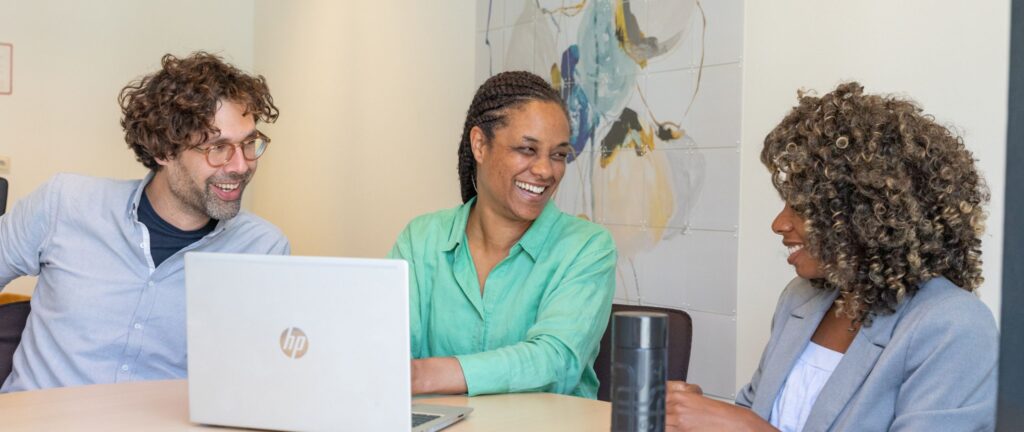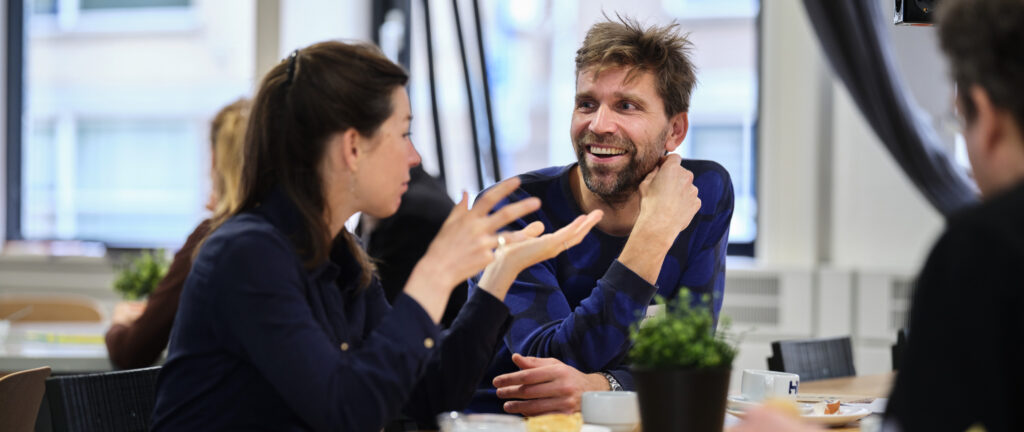Educational vision
The University of Humanistic Studies aims to educate students to become academically trained professionals and socially engaged citizens who strive for a dignified existence for everyone in their actions and thinking. They are able to act based on humanistic values and a moral orientation derived from these values.
Our graduates leave the university equipped with knowledge and skills that enable them to pursue their careers in many different ways. They can guide individuals, groups and organisations in questions of meaning and existential issues, contribute to the reflection on moral issues and processes of humanisation in social, organisational and policy contexts. They can also play an initiating and/or executive role in solving problems and conflicts in various contexts, for example in healthcare, education, policy, organisations or companies, and research.
A cohesive learning community with small-scale education
The UvH aims to be a university where students are seen and known and where the lines between students and lecturers are short. Interactions between lecturers and students are characterised by respectful dialogue. Students learn not only from lecturers but also from each other. Lecturers also want to continue learning – from each other and from students. In this way, they can form a learning community together.
At the heart of society
The UvH not only wants to offer a good learning environment within its walls, but also believes that good education takes place in relation to, through and within society. Our vision of the educated student and the idea that our education consists of academic, professional, moral and personal development requires that students learn from other professionals and other people in guest lectures, internships and research.
Development-oriented
In order to train students to become critically reflective, normative, socially engaged professionals who are inspired by humanistic values, academic, professional and personal development are important. Together, these require a development-oriented approach to education, characterised by increasing self-direction on the part of students. During the programme, the guiding role of lecturers will diminish, allowing students to discover things for themselves.
There is also a focus on (promoting) reflection, critical thinking and dialogue. To this end, not only do lecturers provide feedback to students, but we also want to teach students to give functional and helpful feedback to lecturers and to each other. Lecturers are therefore expected to be self-reflective and to take feedback from students and their colleagues seriously. They also demonstrate to students their scientific and investigative attitude towards their own and others’ points of view and show that they are open to values that are central to other worldviews.
Multidisciplinary
In order to provide insight into the complexity of society, education must undoubtedly be multidisciplinary, but multidisciplinarity is not always sufficient to gain a thorough understanding of contemporary issues concerning philosophy, meaning and humanisation. That is why the university also strives for interdisciplinarity in education. This means that different disciplinary approaches, perspectives and theories are not only taught alongside each other, but are also linked to each other.
Pluralistic and inclusive
The university is rooted in and aims to serve Dutch society. However, that society is globalised, pluralistic and diverse. The University of Humanistic Studies therefore strives to provide education that familiarises students with international themes, perspectives, influences and cultural trends, while also connecting them to the current reality of Dutch society.
We also want to be an inclusive community that is accessible to all students who meet the entry requirements for our programmes. Inclusivity is therefore not only a subject within education, but also a characteristic of the educational practice we want to achieve.
Inspiring and accessible
The UvH aims to provide an environment in which students and lecturers can learn and work (together) effectively. We believe it is important that students enjoy coming to university, but also that they are able to study and collaborate effectively from other locations, whether face to face or online.


